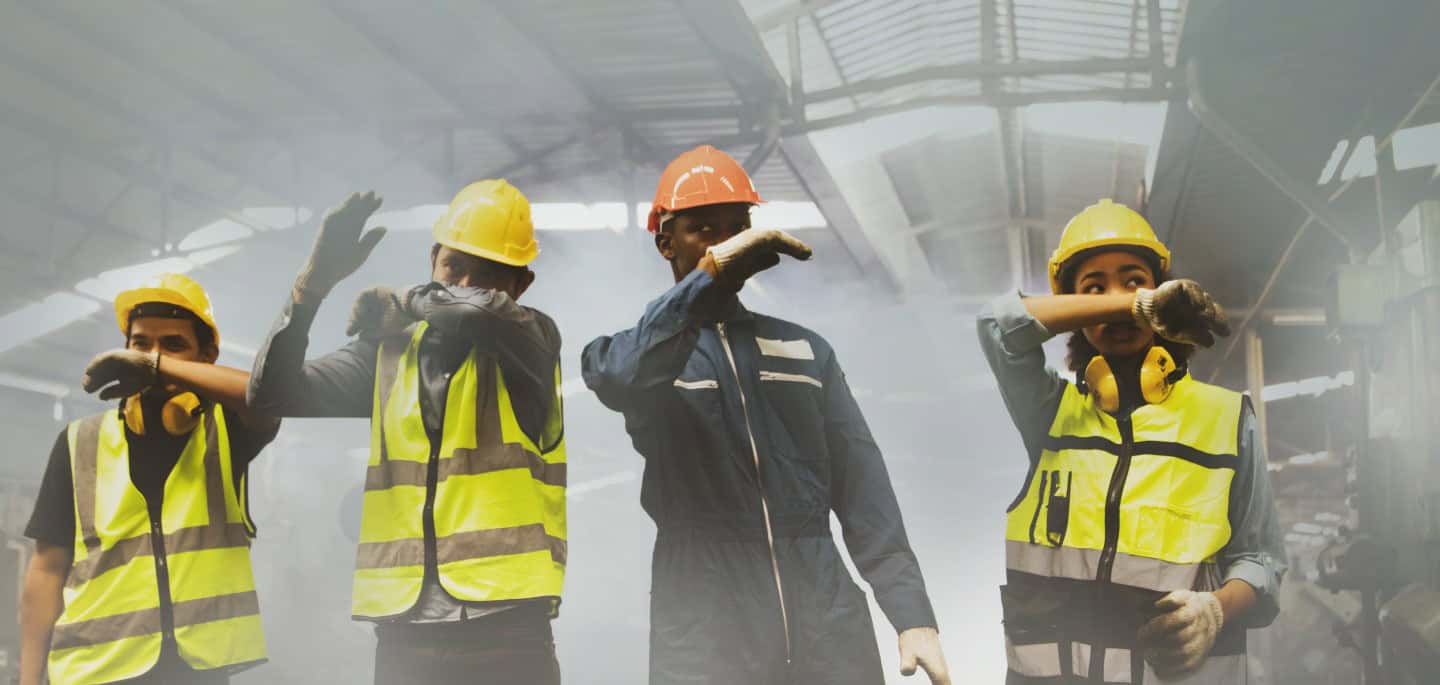
Chemical inhalation injuries in the workplace – causes, symptoms and management
People who work in agriculture, factories, industrial plants, paint stores, hardware stores and science labs are among those at risk of chemical inhalation injury. Here we look at chemical inhalation exposure risks, symptoms and management.
Chemical inhalation injuries can stop you from being able to go about your day-to-day life, sometimes for a long period of time. In serious cases, you might have even suffered damage to your nervous system and internal organs, which can have life-changing consequences.
Injuries are highly varied and completely dependent on the toxin causing the injury, the concentration inhaled and the length of exposure.
Types of chemical inhalation and exposure risks
There are three different routes for chemical inhalation:
- Inhaling the chemical or gas through breathing
- Absorption of chemical or gas through skin
- Ingestion of chemical or gas through the mouth.
Some of the common scenarios where chemical inhalation injuries can occur are:
- Use of pesticides and fertilisers
- Inhaling exhaust fumes from machinery
- Use of industrial cleaning products
- Use of adhesive and paints
- Exposure to fumes from soldering and welding.
Chemical inhalation symptoms and damage caused
Chemical inhalation is dangerous as it is very subtle in nature. A toxic chemical can quickly dissipate into particles or gases which are not visible to the naked eye.
Symptoms of chemical inhalation injuries include:
- Shortness of breath
- Persistent coughing
- Headaches, dizziness and weakness
- Vomiting
- Nausea
- Chest pain
- Fever and chills
- Burning eyes.
Most chemical inhalation injuries result in direct damage to the respiratory epithelium. This can lead to an increase in mucus production and cell death.
If a victim is exposed to a harmful chemical for a long period of time in high concentrations, they can become very ill as their airways will become blocked, making breathing difficult. It is common for a person not to realise they are a victim of chemical inhalation until months or even years after exposure.
Victims of chemical inhalation injuries can suffer from persistent respiratory problems, bronchitis, various types of cancer and even death.
Chemical burns and injuries can stop sufferers from being able to go about their day-to-day life, sometimes for a long period of time. In serious cases, they might have even suffered damage to their nervous system and internal organs, which can have life-changing consequences.
Chemical inhalation management – employer responsibilities
If you work with potentially harmful liquids and gases, then you’re at greater risk of suffering from a chemical inhalation injury – especially if your employer has failed to follow health and safety laws put in place to protect you.
Whilst certain types of work do carry significantly more risks than others, all employers have a legal duty to do everything they can to keep you safe.
Some key things your employer should do to avoid injuries are:
- Provide Personal Protective Equipment (PPE) – this is anything that can be used to protect you from injury and might include a protective apron, gloves and eye goggles.
- Store chemicals safely – all chemicals should be kept in sealed containers and stored where they’re unlikely to be knocked over or damaged.
- Prepare risk assessments – employers should carry out regular risk assessments to make sure hazards are being taken into consideration. They should then put measures in place to avoid accidents from happening.
- Provide training – any employer should also make sure that you’ve been fully trained to use these types of substances before you begin any work, and it’s just as important as an employee that you follow any training you’ve been given.
COSHH, or the Control of Substances Hazardous to Health Regulations 2002, lists the steps that employers should take to make sure any staff who use strong chemicals as part of their job are as safe as possible.
Making a claim for chemical inhalation
If your employer has not followed these health and safety rules, you might be able to make a claim for the pain, suffering and loss of amenity and financial loss that that you have suffered or will suffer in the future as a result of chemical inhalation.
Any chemical injury can be very painful and difficult to come to terms with, but if it was caused by somebody else’s negligence then this can make your situation even more frustrating. Although making a claim can’t take back what you’ve been through, getting in touch with a specialist solicitor can help you get your life back on track.










